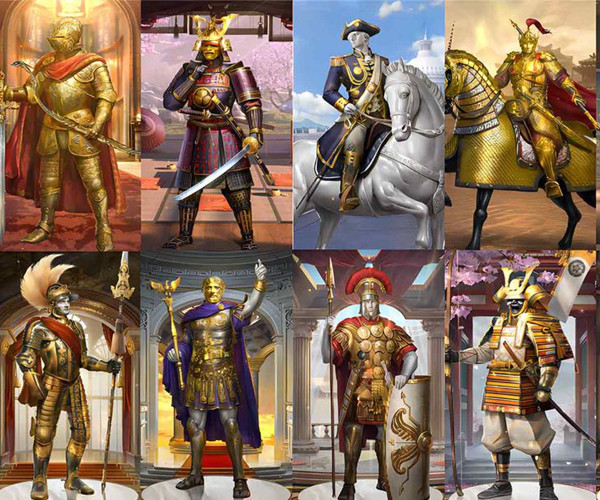Introduction to Civilization
The “Civilization” series is a renowned franchise in the realm of turn-based strategy games, captivating players since its inception in 1991. At its core, the series revolves around the concept of building and expanding a civilization through various historical eras, starting from the ancient world and progressing to the modern age. This gameplay not only entertains but also serves as an engaging educational tool, allowing players to learn about human history, technological advancements, and cultural evolution.
The game’s broad appeal lies in its ability to attract both casual gamers and dedicated strategists. For casual players, the thrill of exploration and city-building offers a satisfying experience, while hardcore players relish the intricate strategies and long-term planning required to dominate the game. However, potential players should be aware that “Civilization” can demand a significant time commitment, often requiring hours or even days to complete a single game. This immersive nature ensures that players become deeply invested in their civilizations and the strategies they employ.

Core Gameplay Mechanics
One of the first decisions players face is Civilization Selection. Each civilization comes with unique traits that can significantly influence gameplay strategies. For instance, some civilizations excel in military prowess, while others may focus on cultural or economic advantages. Understanding these traits is critical for crafting a winning strategy tailored to your chosen civilization.
Map Exploration is another essential mechanic. Players must explore the game world to discover valuable resources, strategic locations, and other civilizations. This exploration can yield advantages that boost a player’s development, such as finding luxury resources or discovering ancient ruins that provide bonuses.
Building a successful civilization hinges on City Building, where players establish cities that serve as hubs of growth and production. Choosing optimal locations and expanding cities wisely can lead to a flourishing empire. Additionally, Resource Management plays a vital role, as players must gather and efficiently allocate resources like food, production, and gold to support their civilization’s growth.
The advancement of your civilization is also tied to Technology and Culture. Players engage in researching new technologies and adopting cultural policies that can provide various benefits, from military advancements to enhanced diplomatic options. Balancing these elements is crucial for overall success in the game.
Military Strategy and Diplomacy
In “Civilization,” Military Strategy is paramount for those seeking domination. Each unit has distinct strengths and weaknesses, and understanding these can turn the tide of battle. Players must also consider combat tactics, such as flanking maneuvers or defensive formations, to outsmart their opponents.
Equally important is Diplomacy. Building alliances, engaging in trade, and navigating warfare are all aspects that can influence player interactions. A skilled player balances aggression with diplomatic relationships, leveraging treaties to fortify their position while preparing for potential conflicts.
Strategic military positioning can greatly affect gameplay. Players should aim to control key territories and resources, which can deter aggression from opponents. Successful military tactics often involve surprise attacks or calculated retreats, while effective diplomatic maneuvers can lead to advantageous trade agreements or alliances that bolster your civilization’s strength.
Examples of successful strategies abound, from the use of naval supremacy to control trade routes to forming coalitions against a common enemy. By mastering both military and diplomatic strategies, players can navigate the complexities of the game effectively.
Victory Conditions and Game Progression
Achieving victory in “Civilization” requires a clear understanding of the various Victory Conditions available, including Domination, Science, Culture, Religious, and Score victories. Each victory path requires different strategies and focuses, encouraging players to adapt their gameplay according to their chosen goals.
As players progress through turns and eras, the game becomes increasingly complex. Strategic depth is essential, as players must evaluate their progress, adjust their strategies, and anticipate opponents’ moves. Transitioning between victory strategies is also vital; for instance, a player may begin focusing on cultural growth but shift towards military expansion if an aggressive neighbor emerges.
Understanding the nuances of these victory conditions empowers players to craft tailored strategies that align with their strengths and the unique attributes of their chosen civilization. This adaptability is often the key to achieving success in the game.
The Role of Players vs. AI
The dynamics of playing against AI opponents versus human players can significantly alter the gameplay experience. AI typically has limitations in strategic thinking and adaptability, often following predictable patterns. This can make AI opponents easier to outmaneuver, but they can still pose challenges, especially at higher difficulty levels.
Human players, on the other hand, can leverage creativity and pragmatism in decision-making. The unpredictability of human actions can lead to dynamic and exciting gameplay. However, this also means that players must remain vigilant, as human opponents can employ unexpected strategies that can disrupt well-laid plans.
There are numerous instances where AI fails to respond effectively. For example, an AI may neglect an emerging threat or mismanage its resources, providing savvy human players with opportunities to capitalize on these mistakes. This contrast highlights the importance of player intuition and adaptability in achieving success.
Expanding Your Civilization
Effective expansion is crucial for the growth of your civilization. Strategic City Placement is fundamental; players should consider resource availability, defensibility, and potential growth when establishing new cities. The right location can provide significant advantages in production and resource acquisition.
Planning for future Technological Advancements is another critical aspect of expansion. Players must balance immediate needs with long-term goals, ensuring that their civilizations are prepared for future challenges. This foresight can lead to breakthroughs that enhance military capabilities or cultural influence.
Moreover, balancing Military Expansion with economic and cultural growth is vital. Rapid territorial expansion can stretch resources thin, leading to discontent among the populace. Therefore, managing population growth and resource allocation is essential for maintaining a healthy civilization.
Players should also consider the impact of their growth strategies on the overall health of their civilization. Sustainable practices can lead to a more resilient empire, able to withstand external pressures and adapt to changing circumstances.
Multiplayer Experience
The Multiplayer Experience in “Civilization” offers a distinct dynamic compared to single-player campaigns. Engaging with human opponents introduces a level of unpredictability and excitement that AI cannot replicate. Players must navigate negotiations, form alliances, and prepare for conflicts in real-time, which adds a layer of complexity to the gameplay.
Strategies for negotiation and alliance-building become critical in multiplayer settings. Players need to be adept at reading opponents and understanding their motivations, which can lead to fruitful partnerships or intense rivalries. The tension of human interactions can lead to memorable moments, whether through betrayal or unexpected alliances that shift the balance of power.
Multiplayer also changes the approach to strategy and victory. Players must be more adaptive, as human opponents can quickly alter their tactics in response to your moves. This fluidity can make multiplayer sessions exhilarating and challenging, as players must think several steps ahead.
Comparisons with Other Strategy Games
When comparing “Civilization” to other strategy games, such as Humankind and Stellaris, several similarities and distinctions emerge. All three games share core gameplay mechanics associated with exploration, resource management, and strategic development, but each brings unique features that cater to different player preferences.
“Humankind” offers a more flexible approach to civilization-building, allowing players to mix and match cultures throughout the game. This feature provides a fresh take on the traditional formula, emphasizing adaptability and innovation. On the other hand, “Stellaris” focuses on space exploration and empire management, offering a different setting and strategic challenges.
Each game appeals to various styles of 4X (explore, expand, exploit, exterminate) gameplay, providing players with diverse experiences. Understanding these comparisons can enhance a player’s appreciation of “Civilization” and highlight its unique strengths.
Conclusion: Mastering Civilization
In summary, mastering “Civilization” requires a comprehensive understanding of the essential strategies and gameplay elements discussed throughout this guide. Players are encouraged to explore various approaches, adapt to changing circumstances, and embrace the complexities of the game.
The ability to adjust strategies based on the unique attributes of your civilization, the actions of opponents, and the evolving game world is paramount. This adaptability, combined with foresight, can lead to a rewarding gameplay experience.
The enduring appeal of the “Civilization” series lies in its depth and the opportunities it provides for creative strategy. As players embark on their journeys to build empires, they are invited to share their experiences and strategies, contributing to the rich tapestry of the “Civilization” community.
Armando Maynez
Engineer, industry executive, research enthusiast. Avid learner with diverse interests in coding, machine learning, artificial intelligence and reinforcement learning. 17+ years of experience working in multinational corporations.



Comments